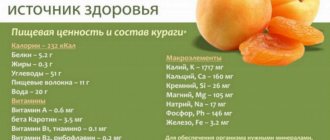What diseases lead to riboflavin deficiency?
Vitamin B2 deficiency is likely in people with eating disorders or severe malnutrition due to any other reason. It is also very common among alcoholics, the elderly, low-income people and those who suffer from severe depression (anti-depressive diet - read here ).
Alcoholics are especially at risk for several reasons. They not only eat poorly and irrationally (although not always); Drinking too much alcohol blocks the absorption of riboflavin and other essential nutrients, making deficiency almost inevitable.
Treatment of hypovitaminosis
Scurvy is treated with high doses of daily vitamin C supplements, followed by a nutritious diet that provides twice the daily recommended amount of vitamin C. The diet should include an increased intake of fresh vegetables and fruits.
Treatment for short-term vitamin C deficiency is to enrich the diet with ascorbic acid and take it additionally to replenish the deficiency already formed in the body.
To create the most rational diet, you may need the help of a nutritionist. After some time, you can stop taking vitamin C supplements. However, it is important to continue eating an ascorbic acid-rich diet after stopping supplementation. This will help avoid repetition.
What does a lack of vitamin C lead to?

Over time, with vitamin C deficiency, a decrease in collagen synthesis develops. This causes various tissues of the body to begin to become decrepit and break down, and this affects the health and repair of cells and tissues. Persistent (chronic) vitamin C deficiency, usually lasting about three months or more, causes scurvy.
Vitamin C Rich Foods
- Citrus fruits: such as oranges, grapefruits, limes and lemons.
- Berries: For example, blackcurrants, strawberries, raspberries, blueberries and cranberries.
- Pumpkin, melon and watermelon.
- Kiwi.
- Vegetables: spinach, green and red peppers, tomatoes, cauliflower, cabbage, broccoli, Brussels sprouts and potatoes.
Some, such as cereals, are fortified with vitamin C. Ascorbic acid is also found in fresh milk, fish and organ meats (liver and kidneys).
Most vitamin C comes from fruits and vegetables. Cooking reduces the ascorbic acid content by about a third
The recommended daily intake of vitamin C in the diet varies by age and gender, and recommendations may vary from country to country.
- Pregnant and breastfeeding women also need more vitamin C in their daily diet.
- Children aged 1-10 years need 30 mg of vitamin C per day.
- Children aged 11-14 years need 35 mg of vitamin C per day.
- Children over 15 years of age and adults need 40 mg per day.
Summarize
- Although thiamine deficiency is rare in developed countries, various factors or conditions, such as alcoholism or advanced age, may increase your risk.
- Thiamine deficiency can manifest itself in a variety of ways, and symptoms are often nonspecific, making identification difficult.
- Fortunately, thiamine deficiency can usually be easily corrected with dietary adjustments or supplementation.
Tags: B vitamins, Thiamine
- Related Posts
- Capsaicin Supplements: Uses, Properties, Side Effects
- Choline: what it is, properties, where it is found
- What are antioxidants and what are they for?
« Previous entry
Symptomatic manifestations
It is known that group B contains about twenty vitamin substances. The deficiency of each of them has certain symptomatic manifestations. Often, just an examination by a specialist is enough to determine which vitamin reserves need replenishment.
Vitamin B1 deficiency
Signs of thiamine deficiency are:
- deterioration of mnestic processes;
- thought disorder;
- increased irritability;
- nervousness, fatigue;
- development of depressive disorders;
- convulsions;
- dyspnea;
- sleep disorders;
- the appearance of muscle weakness;
- deterioration in the ability to coordinate movements.
Lack of vitamin B2
Signs of riboflavin deficiency include:
- the appearance of flaky areas of the skin in the facial area;
- the appearance of cracks (“zaid”) in the corners of the lips;
- redness of the skin on the eyelids;
- increased incidence of styes;
- decreased vision;
- lack of appetite;
- development of iron deficiency anemia;
- irritability, susceptibility to stress, depressive disorders.
With a lack of this substance, a person’s appearance suffers the most.
Vitamin B3 deficiency
A lack of niacin (nicotinic acid) is accompanied by symptoms such as:
- development of dermatitis of varying severity;
- the occurrence of ear noise (hum);
- frequent dizziness;
- appetite disorders;
- frequent occurrence of acute respiratory viral infections and other viral and infectious diseases.
In addition, with a lack of this substance, there is a disruption in the functioning of the central nervous system, blood flow, and an increase in the number of cholesterol plaques.
Lack of vitamin B4
Choline deficiency affects the human body in that:
- metabolic processes slow down;
- the functioning of the liver system is disrupted;
- the enzymes necessary for normal digestion of food are not transported to the gastrointestinal tract quickly enough;
- mnestic processes of the brain are disrupted.
Vitamin B5 deficiency
Pantothenic acid is found in all foods. For this reason, it is extremely rare that there is a shortage. It can be identified by such symptomatic manifestations as:
- the appearance of a feeling of “numbness” in the arms and legs;
- brain pathologies that manifest themselves in severe form;
- the appearance of excess weight;
- the development of various diseases characterizing pathological conditions of the mucous membrane.
Lack of vitamin B6
Pyridoxine has another name. Experts often call it the “enzyme of happiness.” With its excess in the human body, stress resistance increases and the immune system is strengthened. Symptoms of pyridoxine deficiency are:
- increased drowsiness;
- inflammation of the gums, accompanied by bleeding;
- constant dry mouth;
- motor, emotional inhibition;
- increased irritability;
- apathy;
- sleep disorders;
- lack of appetite;
- disruption of hematopoietic processes.
With a lack of pyridoxine, asthmatic attacks may become more frequent, and the condition will also worsen in the period before the onset of menstrual syndrome.
Vitamin B7 deficiency
Choline is a substance very important for the normal functioning of the human body. It is responsible for filling tissues and cells with additional energy and accelerating the processes of fat metabolism. Its long-term absence in the human body is fraught with consequences such as:
- deterioration of the skin throughout the body;
- increased drowsiness, the appearance of a state of general weakness;
- decreased appetite;
- constant depression;
- dyspeptic disorders;
- increased hair loss;
- decrease in the level of hemoglobin in the genetic material;
- frequent decreases in blood pressure;
- the occurrence of symptomatic manifestations characteristic of conjunctivitis;
- increased fragility of nail plates;
- violation of carbohydrate and amino acid metabolic processes;
- muscle pain.
Lack of vitamin B8
Inositol deficiency is characterized by such symptoms as:
- the appearance of fatty deposits in the liver system;
- the appearance of symptoms of skin diseases;
- rapid development of atherosclerotic diseases;
- problems in the functioning of the musculoskeletal system;
- development of psychological problems, decreased resistance to stress.
Vitamin B9 deficiency
Vitamin B9 – folic acid. Its deficiency causes many problems not only in adults, but also in children. The main symptoms of a lack of this valuable element are:
- sudden loss of strength;
- decreased appetite;
- yellowish tint to the white of the eyes;
- development of shortness of breath at the slightest exertion;
- rapid development of anemia;
- deterioration of the condition of the hair and nail plate;
- pathologies of fetal development in the prenatal period;
- painful sensations in the abdomen, tongue;
- development of dyspeptic disorders.
Lack of vitamin B10
Insufficient intake of para-aminobenzoic acid is manifested in the following:
- deterioration in the production of erythroid cells begins;
- dyspeptic disorders occur caused by disturbances in the functioning of the intestine;
- anemia and neurasthenia develop;
- the condition of the skin worsens;
- Gray hair appears early;
- frequent headaches are observed;
- Lactating women produce little breast milk;
- Libido decreases.
Vitamin B12 deficiency
Lack of cobalamin manifests itself in:
- the appearance of dandruff;
- deterioration of hair condition;
- increased fragility of blood vascular walls;
- manifestation of signs of atherosclerotic diseases;
- emotional instability;
- development of the state of parasthesia;
- painful sensations in the calf muscles.
Vitamin B17 deficiency
Amygdal is a substance that has an antioxidant effect on the human body. Its deficiency can lead to the development of cancer.










